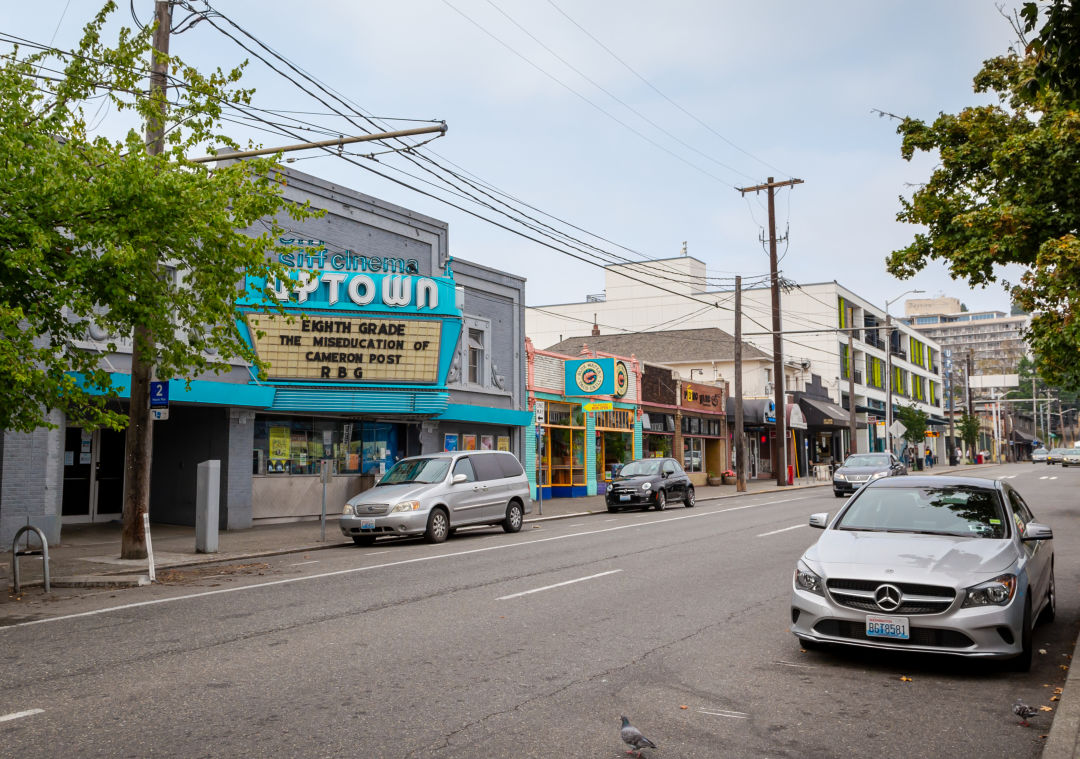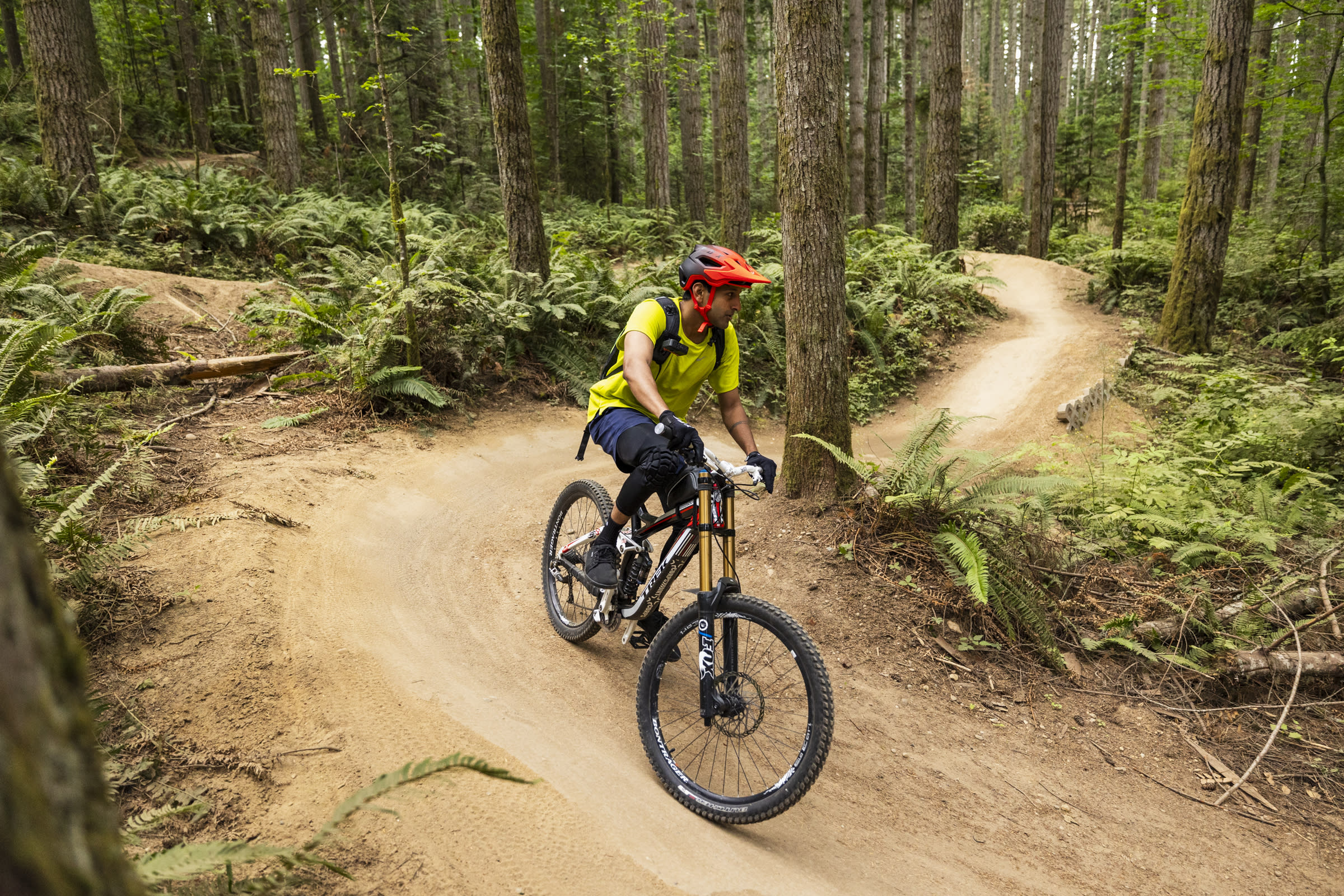Seattle City Council Stokes the Debate: Uptown or Lower Queen Anne?

SIFF Cinema Uptown appears to take a stance on the situation.
Image: Shutterstock by By CineCam
Here we go again. On Monday, Seattle City Council passed a resolution requesting that all city departments, as well as online location services (think Google Maps), refer to the area widely known as Lower Queen Anne by its technical title: "Uptown."
The news revived a classic Seattle debate: Despite boasting an impressive array of neighborhood names, the city can't quite agree on what to call perhaps its most well-known swath of land. The Space Needle, Chihuly Garden and Glass, and MoPOP draw tourists to a community that features a variety of historical references to "Uptown," including SIFF Cinema Uptown and Uptown Espresso. The city embraced this nomenclature in its most recent Comprehensive Plan update, dubbing the area the Uptown Urban Center. It also created the Uptown Arts and Culture District in 2017.
But to many Seattle locals, the blocks west of Aurora Avenue North, north of Denny Way, east of Elliott Avenue West, and south of Roy Street have been, and should always be, known as Lower Queen Anne. As Seattle City Council Insight put it on Twitter, the resolution sponsored by council member Andrew Lewis "boils down to 'can everyone please call it Uptown and not Lower Queen Anne?'"
Confusion, in part, motivated that request. Though the city has long since indicated its preference for the name Uptown, Google Maps and other services have still opted to go with Lower Queen Anne. Google Maps has finally made the switch to Uptown after Monday's resolution. Still, it's unclear why anyone in 2021 would type in a neighborhood name instead of, say, "Space Needle," into a GPS.
A more salient push for Uptown is to distinguish the area from Queen Anne. Debi Frausto of neighborhood nonprofit Uptown Alliance notes that her community of 7,000 has welcomed dense housing, whereas places like Queen Anne and Magnolia are often zoned for single-family homes. While she respects anyone's desire to call the community Lower Queen Anne, she thinks there's a misperception about the name Uptown circulating online. "It's interesting that some people will find a twist in that, and find Uptown for them may mean kind of a privileged, upper-scale place," she says. "and that's the exact opposite of being a dense urban neighborhood who respects [its] heritage."
Frausto says "Uptown" has gained "real recognition" in the 15 years she's lived there, though outside of the neighborhood, people might not know about it. The resolution arrives at an auspicious time, she says, as the opening of Climate Pledge Arena will only bring more attention to the community.
But even if people don't like Uptown, Frausto thinks people could channel that passion elsewhere. Uptown Alliance, for instance, is a 100-percent volunteer organization that assists with everything from street cleanups to planning. "I get that it can get emotional around the name of it," she says, "but get involved."
Hard to argue with that.




